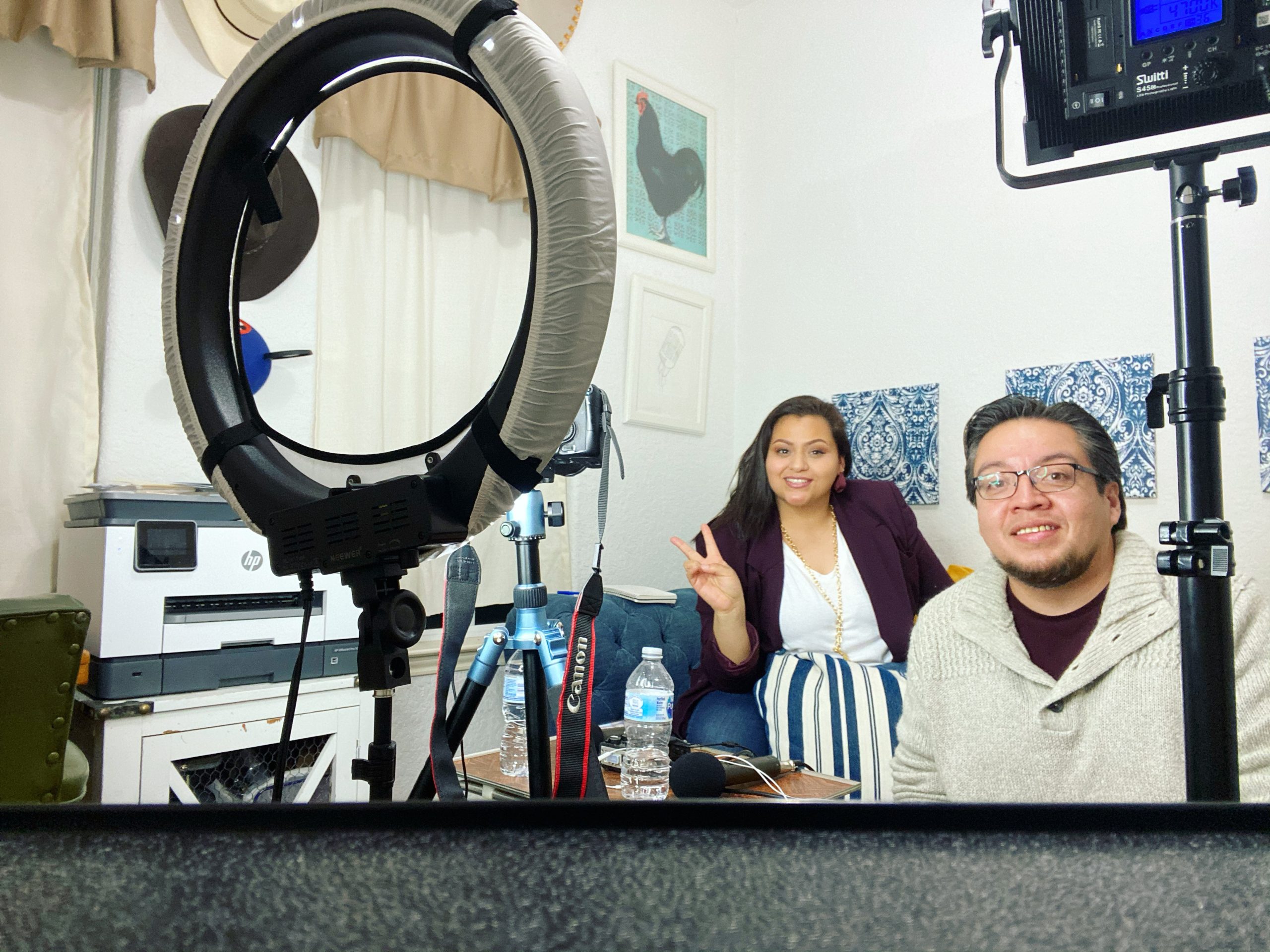My parents never pressured us to be bilingual. We had to be… because our worlds took place in English and Spanish. At home mamá y papá would not understand us if we used our English. In school, even though most us kids spoke Spanish, we just preferred el inglés to communicate with one another, and we had to use it any way for all of our class work. I think, we literally did not have a choice but to become bilingual. But now kids like Edgar don’t have to be bilingual. They don’t have to communicate with their parents in Spanish.

We understand them completely in English… in some cases even better than if they were to speak to us in Spanish. So how do we ensure that this next generation comes up understanding the importance of being bilingual as well? For one thing, it’s probably a good idea to dispel some myths and rumors about raising bilingual kids:
- If you know both languages well, your children will pick them up pretty easily as well. Hold on, let me stop rolling my eyes first. Nope! You know, you never realize your kids have personalities of their own until they say something like “why do I have to speak to you all in Spanish if we all speak and understand English?” After that, it’s perfectly okay to say something like “inche huerco” under your breath. I give you permission.
- Make your children speak Spanish to you and they will become bilingual! This is a continuation of the above. Again, if they know – and more importantly if you know – that what your kid is arguing is true, you just kind of start relaxing on the enforcement. We don’t want to. It just happens. Besides, how much did you pay attention to the things your parents forced you to do?
- Make them speak to each other in Spanish! Yeah… this approach will probably only work in front of you. When you’re not around they’ll speak to each other in whatever language they want to. I’m definitely speaking to you from experience on this one. When our parents weren’t around we didn’t have any reason to speak to each other in Spanish. Even today, it’s always a little awkward to speak to my siblings in full Spanish. Spanglish feels a lot more comfortable for some reason. I guess there’s an intimacy in talking to each other in English. As weird as this might sound, Spanish feels much more formal between us – like we didn’t grow up together for all of those years or something.
- Insist! Insist! Insist! Go a little book crazy! Okay… so if they don’t make books that are 100 percent on the money on how to be a good parent, they probably won’t make any that will guarantee your children will come out perfectly bilingual in a couple of years either. Sorry, but it’s true! Yeah, there are tons of great books on the subject – some really great ones in there at that – but there’s only so much you can learn from a book. The other big part of the equation, you have to actually want to read the book (I mean you and your kids here).
Alright, so enough negativity from me. Despite all of this, it is still possible to raise bilingual kids. Personally, I think it’s more about getting your kids to understand the significance of their being bilingual. Whether it’s because of their culture, the preservation of part of their heritage, the potential opportunities it will lead to in the future, or whatever other reason you want to come up with, once they understand and embrace the importance of learning two languages, they will!



7 thoughts on “Raising a Bilingual Kid: Easy, Breezy – Fact or Fiction?”
I love this! My mother spoke Spanish to me when I was a child and I wish she had been more deliberate with me speaking it back to her. This is such good advice. Thanks!
I’m so glad you liked this one, Ashley! As they say… sometimes less is more.
Yes, it´s not easy, but the real trick is to be consistent and to really have a strong desire to do it.
Kids will naturally rebel, especially if you are enforcing bilingualism on them.
That´s why I insist that the earlier you adapt a method and strategies and stick to them, the better because you will be forming their bilingual brain with no resistance from them yet!
And I disagree on the books portion, our book will be the only one you´ll need! LOL! 🙂
I love this. I’m glad I’m not being too pushy for my son to be bilingual. I’ve noticed that even though we speak English at home, he tends to ask me how to say certain words in Spanish out of his own curiosity. I’m trying to converse more with him, but we usually end up ROFLOLing. I want the process to be interesting and fun for him. Growing up, I didn’t know that there was any other language, but my Mom would have me watch Sesame Street every morning and it helped a lot. Learning a new language should be fun, and not a demanding task. Thanks for solidifying my beliefs, Juan! Great post!
Great post. I couldn’t agree more with how you concluded the subject Juan. It is truly the most important thing , is to understand the VALUE of being bilingual. I am passionate about passing on a second language to my children. It is tremendous effort that I invest in them everyday, but it’s paying off 🙂
It is important, I would suggest classes, I’m not a native speaker of Spanish, and I hate to be negative, but many spanish speakers come from immigrant parents who often do not have high levels of education. As a 2nd language Spanish speaker, and learning formally in Colombia for a year, its amazes me the amount of mistakes people who were raised in Anglo countries by Spanish speakers make. Some have trouble with Ser and Estar, and it worries me that they are the ones teaching Spanish. I would suggest to make them watch formal things in Spanish, movies, The News, and read books. Places where they will really get a hand on formal Spanish, because all of my friends, speak very informal Spanish with tons of regional slangs.
EEK! I sometimes worry about how this will play out with my future children, since I feel more comfortable speaking in English. Hmm can I just leave them at my parents’ house all summer? He he, just kidding.